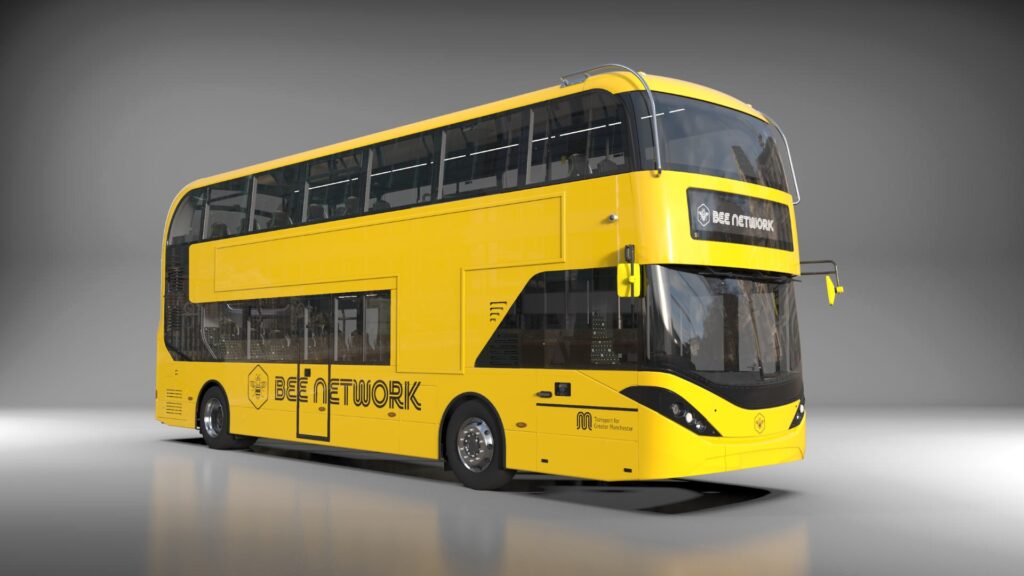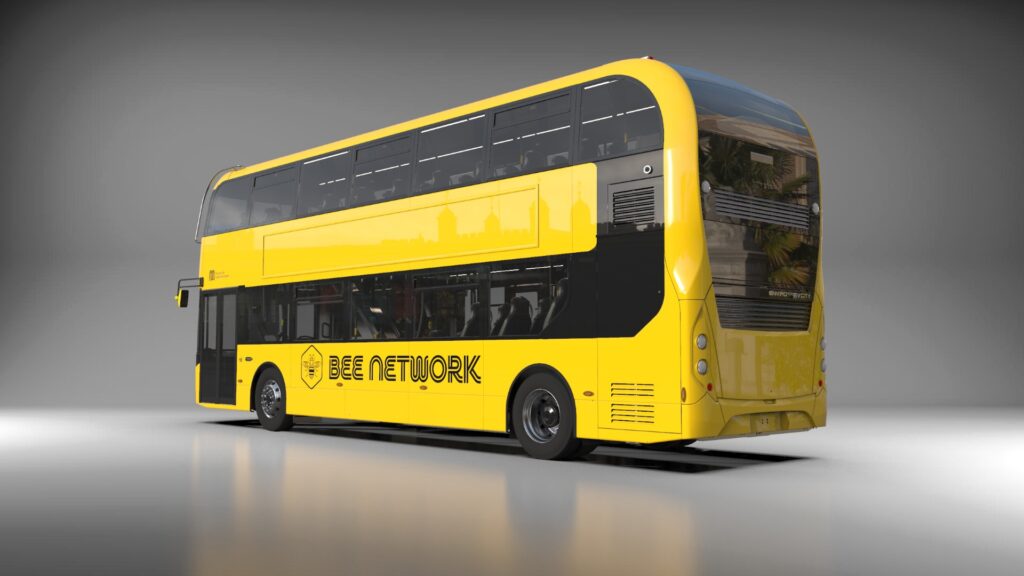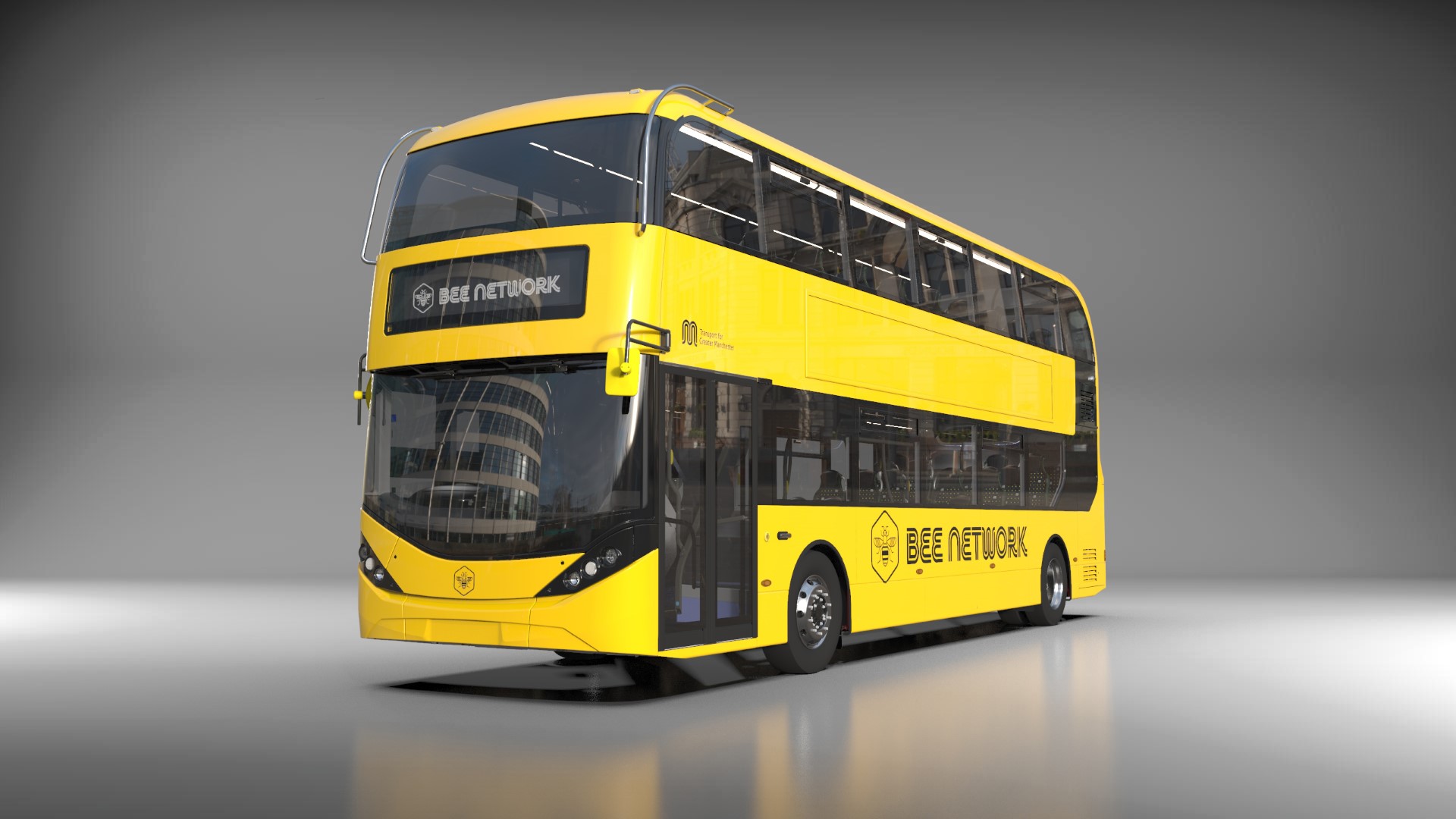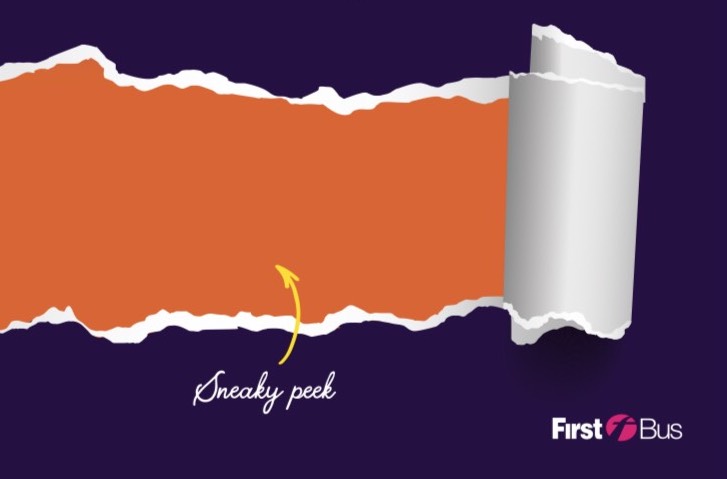New electric buses are coming to Greater Manchester. Buzzin’.
Transport for Greater Manchester (TfGM) has ordered 50 Enviro400City EV buses from manufacturer Alexander Dennis for its new franchised bus system, part of the city’s impending ‘Bee Network’. They’ll be built across the Pennines in Scarborough, and will be the first to feature TfGM’s new Bee Network brand.
Alongisde the announcement for the new buses, Mayor of Greater Manchester Andy Burnham offered a sneak peak of how the new bright yellow buses will form part of the city’s integrated transport network, with a new look for Metrolink trams previewed alongside the existing cycles.
Introducing you to some new Greater Manchester icons … our #BeeNetwork buses.👇🏻
— Andy Burnham (@AndyBurnhamGM) September 22, 2022
50 will hit the streets in a year’s time as buses return to public control.
They’re all being built in the North of England.👊🏻 pic.twitter.com/0WNxmM7BcS
The new electric buses will launch alongside the first phase of the new franchised system, which is scheduled to roll onto the streets on 17 September 2023. The branding they’ll carry is designed to reflect the Mayor’s ‘bold ambition’ for a fully integrated, ‘London style’ integrated system comprising buses, trams, walking and cycling, and eventually, trains.
Which is all well and good, but will it actually work?
Maybe. But firstly, there are some issues to address.

It’s fair to say that Manchester’s bus system in 2022 is a nothing short of a patchwork of operators, and that one bus trundling down any given road in the city looks completely different from the next. There’s very little discernible integration visible to your average person on the street, but each operator tries with varying degrees of effort and success to promote the benefits of their buses to potential customers.
Some are good at it, and others are not so good at it.
This is just one of the reasons that we are where we are today, but are yellow buses the answer to the problem?
Assuming this isn’t the final design for buses, the Bee Network branding as it’s been unveiled does nothing to promote the benefits of neither the bus, nor the newly integrated network it’s now a part of. There’s no reference to the fact that the new buses are zero emission electric vehicles, nor that you’ll be able to use your bus ticket on the tram (will you?), nor why the Bee Network is now better than the system that was in place before.
In short, there’s nothing new here to explain to the person on the street why they should abandon their BMW and jump on a bus instead.

Whilst the current system of deregulated buses is far from perfect and undoubtedly means that the market is fragmented, it also means that the operators are incentivised to promote bus travel, both to their captive audiences on board and to potential new customers.
Competition has driven investment, too. The quality of the buses on the city’s roads today generally far exceeds those you’d find just twenty, ten or even five years ago – both in terms of comfort and amenities. Apps, contactless payments, USB charging, onboard information – they’re all pretty much standard these days, and operators have spent vast amounts of time, energy and money attempting to communicate these benefits to their potential customers.
It’s a system which has resulted in some memorable marketing campaigns and striking bus liveries over the years, all designed to entice potential customers out of their cars and aboard buses.
So let’s hope TfGM creates a real buzz around the Bee Network and builds a compelling narrative to support their investment.
US-Bee power on board, anyone?
We’ll get our coat.
What do you think?
Do you like the look of the Bee Network? Let us know your thoughts in the comments below.
Never miss a post again. Join Transport Designed on Twitter, Facebook, Instagram and TikTok!



